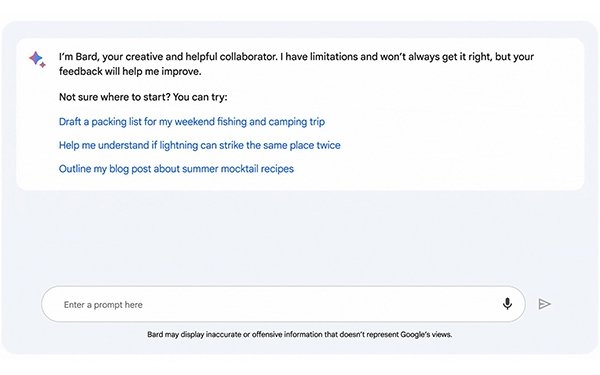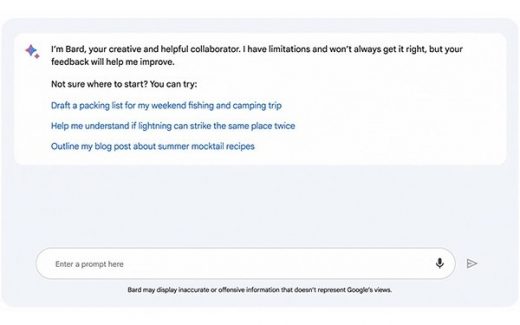Google Improves Math, Logic In Bard As Analysts Compare Chatbot With Microsoft Bing
Google Improves Math, Logic In Bard, Analysts Compare It With Microsoft Bing

Google has updated mathematic and logic capabilities in its chatbot Bard by incorporating advancements developed in its Pathways Language Model (PaLM), a large language model similar to GPT.
“We’re always balancing new capabilities for Bard with efficiency,” tweeted Jack Krawczyk, Google product director. “This update is one example of the many improvements we’re making to Bard every week. There’s a lot more to come and can’t wait to share more as we continue to get your feedback and make Bard even better!”
The improvements enable Bard to better understand and respond to prompts and questions in a multi-step word and multi-step mathematical problems format, with the ability to code coming soon.
Analysts at investment firm Raymond James did a side-by-side comparison of generative artificial intelligence (AI) chat tools Google Bard with Microsoft Bing.
The comparison suggests that Bing seemed “a bit more likely to provide useful and correct answers for fact-based and task-based queries, but neither was perfect,” the analysts wrote in a research note published Monday.
“We believe that AI will positively impact both Google and Microsoft, with Google benefiting from its entrenched leadership position in search and AI investments and Microsoft benefiting from the ability to integrate OpenAI products across both Enterprise and Consumer,” analysts wrote.
Bard, a conversational AI tool, is powered by Language Model for Dialogue Applications (LaMDA). Microsoft’s Bing search engine with generative AI is built on products developed by OpenAI, such as GPT-4.
Raymond James also surveyed about 530 U.S. consumers to gain insights into their thoughts on chatbots and to gauge their interest in which tool, if any, they would use.
Google’s 91% dominant position in Search provides more encouragement for users to engage with Bard — and should provide a long-term advantage for the Alphabet company.
Two-thirds of survey respondents noted that they have at least some interest in using chatbots, and 11% said they use them frequently today.
Some 56% of respondents said they would use Google Bard, with 56% also indicating they would use ChatGPT. About 18% said they would use ChatGPT on the Bing website.
“We believe this should alleviate some investor concern about Google search losing share to Bing,” Raymond James analysts wrote.
Chatbot users find value in the services and are migrating some queries. About 66% of respondents who showed interest in chatbots said they would shift 14% of search activity to chatbots. Some 59% said they would shift about 10% of searches, while 41% said they would shift about 10%of searches.
Analysts believe that for the most part, the loss in share from search AI chatbots would focus more on informational searches and less monetization, versus commercial searches such as ecommerce, travel, and finance.
The research note also details the history of the move to generative AI in Microsoft Bing and Google Bard.
(26)


